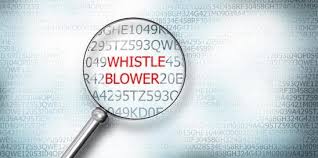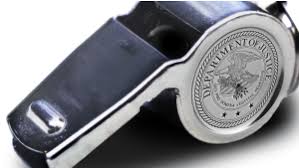DOJ’s New Whistleblower Program: Filling in the Gaps and Encouraging Tips (Part II of II)

DOJ is joining the whistleblower reward sweepstakes in a big way. While the SEC has been grabbing headlines for its whistleblower reward program since 2010, DOJ now wants a piece of the action. DOJ cited gaps that exist under the SEC, CFTC, FinCEN and IRS whistleblower reward programs.
As examples of how the program will work, DOJ cited the $4.3 billion settlement with Binance last year and the $1.2 billion settlement with Glencore for foreign bribery violations. The SEC’s program did not cover these cases. DOJ predicts that tips from whistleblowers could have a significant impact on criminal prosecutions and the penalties imposed against various bad actors.
Interestingly, DOJ anticipates that corporations will invest even more in their corporate compliance programs. Like the SEC program, whistleblowers will have an incentive to report misconduct internally and wait for 120 days before reporting to DOJ.
DOJ amended its Corporate Enforcement Program and Voluntary Disclosure Policies so that a company that that receives an internal whistleblower report may be eligible to receive a non-prosecution agreement, if it reports the misconduct to the DOJ within 120 days and before the Justice Department reaches out to the company.

DOJ’s new incentive structure is designed to encourage companies to increase voluntary disclosures. By dangling the prospect of a non-prosecution agreement, companies may face an interesting quandary — if the company discovers misconduct and reports to DOJ within 120 days of such discovery, the company may earn a presumption of a declination so long as it cooperates and implements remedial measures. Companies will be eligible for a non-prosecution agreement even if an individual reports the misconduct to DOJ so long as the company reports the misconduct to DOJ within 120 days. However, if DOJ reaches out to the company during the 120 day period, then the company will not be eligible for voluntary disclosure credit and a presumption of a declination.
This new set of factors can play out in various complicated scenarios. DOJ’s new whistleblower program pays homage to the 120 day internal reporting standard similar to the SEC whistleblower program, but at the same time pressures companies to self-report as quickly as possible. If companies fail to do so, they can be disqualified from potential benefits of voluntary disclosure.
DOJ does not define precisely how much additional reward will be earned by an individual that initially reports the misconduct internally. Interestingly, if both the company and the individual report the misconduct to DOJ within the 120 day period, both can become eligible for benefits — the individual can earn a financial reward and the company can earn a declination under the Voluntary Disclosure Program.
On the flip side, a whistleblower can suffer a decrease in an award if the person interferes with an entity’s legal, compliance or audit procedures to prevent or delay detection of the criminal violation. Companies also will suffer from DOJ enforcement actions where a company engages in retaliation against any whistleblower, including attempting to enforce confidentiality provisions against the whistleblower.
The new program applies only to information submitted after August 1, 2024. In the case of an FCPA enforcement action, the resolution of such cases can take several years.

Most significantly, DOJ’s program increases the risks for private companies that operate internationally and financial institutions not covered by the SEC program. In response, private companies may disclose potential violations as a way to earn a declination.
One interesting issue is how the new policy will interact with DOJ’s Merger and Acquisition Program under which companies have 180 days after closing of an acquisition to disclose potential criminal violations. Further, it is not clear that a fund consisting of forfeiture proceeds will be adequate to encourage significant whistleblowing reporting. Nonetheless, DOJ is confident that the new whistleblower program will “supercharge corporate prosecutions and enforcement.”
In this new era, companies would be wise to review and enhance their ethics and compliance programs, integrate considerations and timely analysis of potential misconduct, and reporting incentives.















